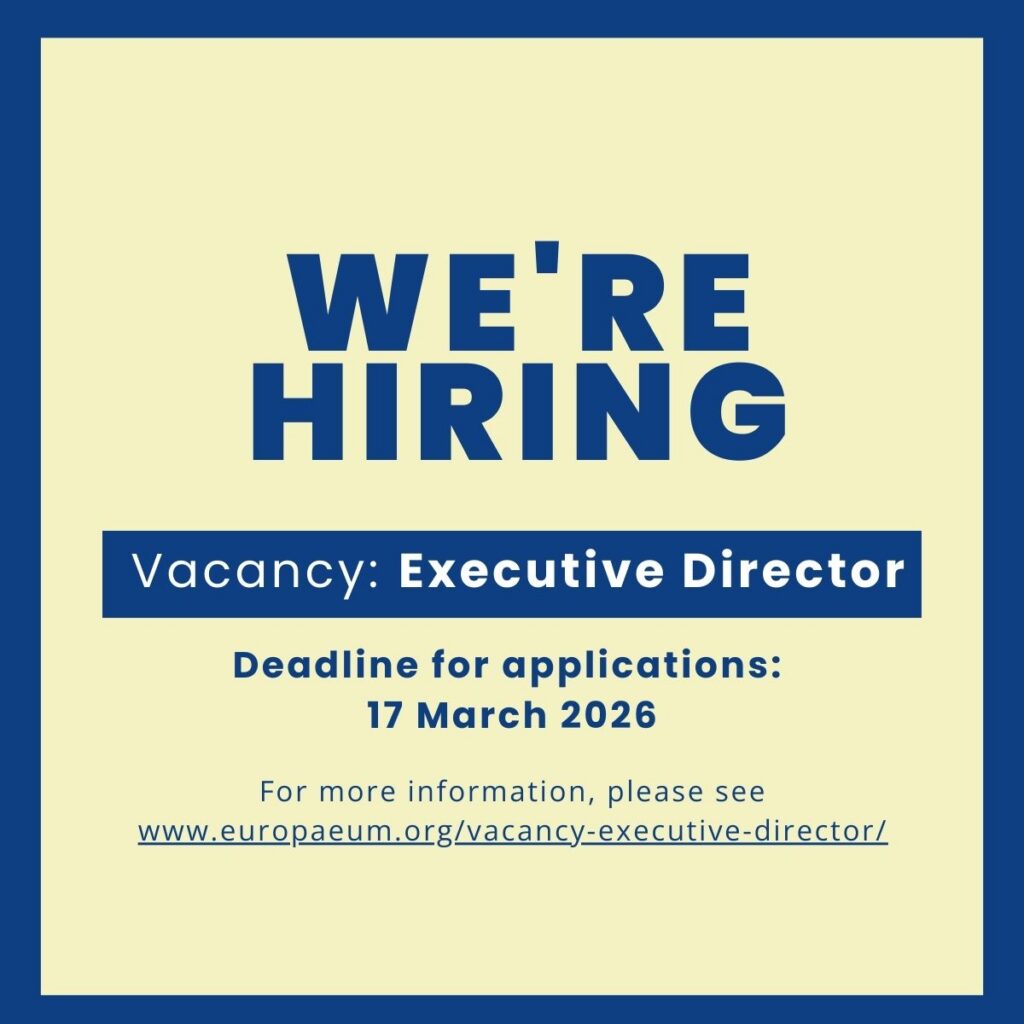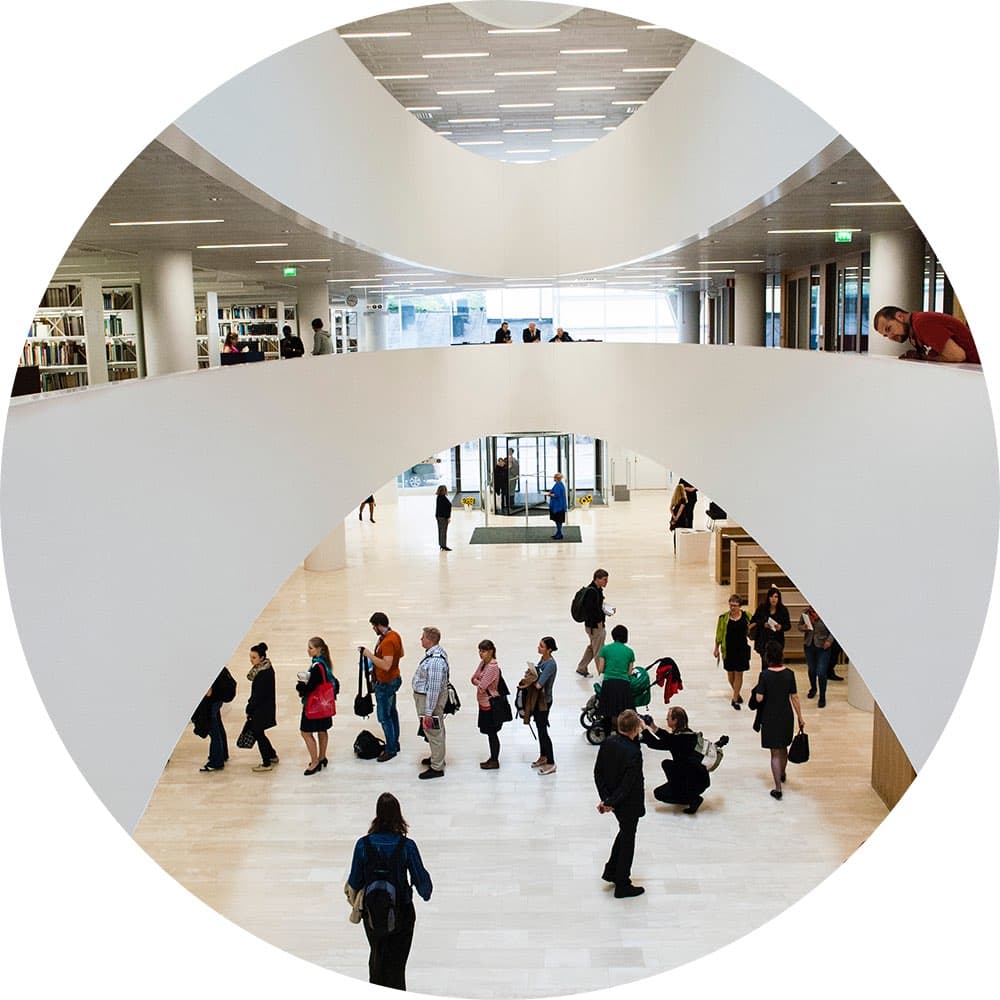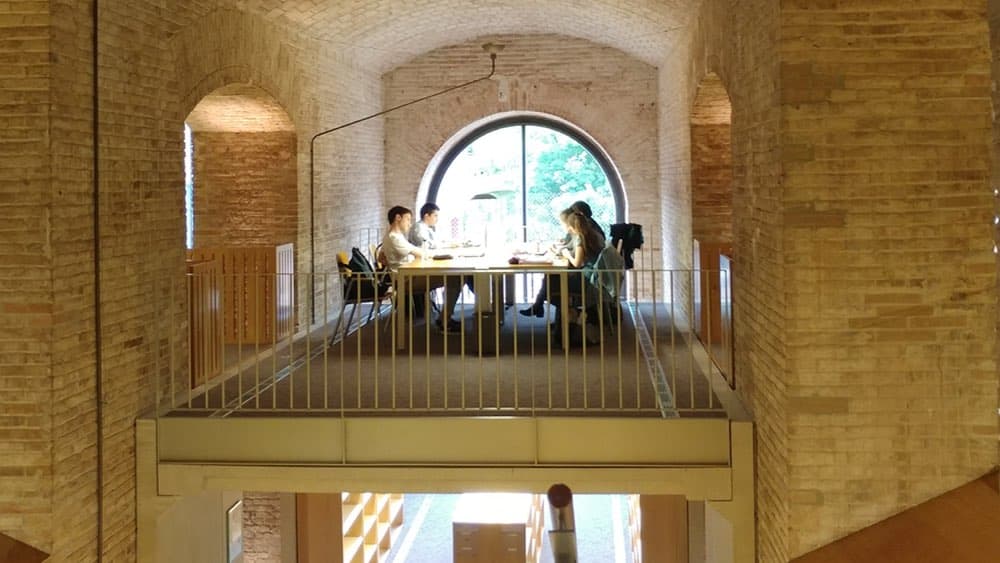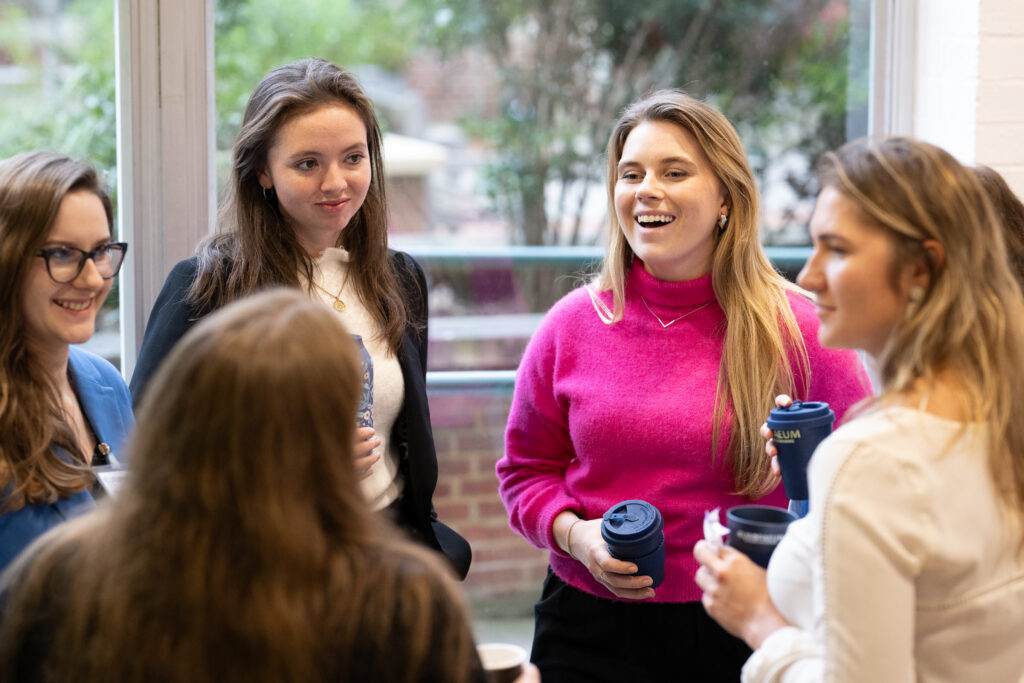

“The Europaeum is more needed today than at any time in the past.”
Senator Vaclav Hampl, Senator of Czech Republic, 2014-2020, and Rector of Charles University, 2006-2014
“We need European intellectuals who can give us the whole picture of Europe.”
Romano Prodi, President of the European Commission, 1999-2004
When you look out of the window, what do you see – buildings, cars, people? What you do not see is the glass! Think about how it was to live before the invention of glass.
And what is the “glass” for Europe? It is the Rule of Law and the set of institutions, ideas and values handed down to us from the Age of Enlightenment and the Scientific Revolution. This is the conceptual framework that has shaped the modern western world. These are the ideas that replaced superstition with science, dogma with reason, fate with free will, and authority on high with the moral choice of the individual. All those aspects of living which have enormous value, but which go largely unnoticed.
These ideas have spread across the globe but, their origins are European. Aristotle was Greek, Spinoza – Dutch/Portuguese, Rousseau – a French-speaking Genevois, Descartes, Montesquieu and Voltaire – French, Kant – German, Locke – English, Hume and Smith – Scottish. Today, these ideas are threatened, inter alia, by populism, prejudices, fake news and conspiracy theories. And, on the wider stage, Europe faces challenges from pandemics, growing inequalities, and climate change.
The member universities of the Europaeum have unanimously agreed that, far from re-trenching, this is the time to build on the foundations we have established, to reassert our values and enhance our inter-connectedness. This is why the Europaeum exists. We need more, not less, emphasis on universities engaging with the wider society, more, not less, international collaboration, and more not less, drawing together of the disciplines.
These three themes reflect our focus on students whose disciplines lie primarily (if not exclusively) in the Humanities and the Social Sciences. Some events sit squarely within a single theme (such as Classics Colloquium in the first or the Brussels Policy Seminar in the second), while others straddle two or three. They form the foundation of the Europaeum’s philosophy of facilitating and encouraging critical and innovative thinking about Europe and European identity. Across all three themes, we study societal problems and how they might be tackled. Almost inevitably, this requires a multidisciplinary approach – which many Europaeum students find so exciting and so different from much of their traditional academic study. Linguists have to talk to lawyers, economists to historians, sociologists to philosophers and all of these to practitioners and policy-makers to help us understand more about Europe’s culture, politics and people and what might be done to make Europe a better place.
The following opportunities are offered on a regular basis to achieve these goals:
Our flagship two-year policy and leadership course, open, via competition, to some thirty of the best doctoral candidates within the Europaeum network and taken alongside an existing doctorate.
Workshops, seminars, conferences and debates, open to any student currently enrolled at one of the member universities.

Three Europaeum master’s degrees, awarded by member universities, have given students the opportunity to spend study time at different universities during their enrolment.
Calls for applications, reports of the Europaeum’s past events and activities, and other notable events of relevance to the network.

The idea for the Europaeum was initially suggested to Lord (Roy) Jenkins in 1991 by George Weidenfeld and Ronald Grierson in the wake of the Fall of the Berlin Wall. Roy Jenkins had just become Chancellor of the University of Oxford, after being President of the European Commission, and he rapidly saw the merits of greater cross-border cooperation among universities in the new Europe then emerging. The network came into being in 1992 with an initial membership of Oxford, Leiden and Bologna.
The network soon expanded to include Bonn University (Rheinische Friedrich-Wilhelms-Universität Bonn) in 1996; Paris I (Panthéon-Sorbonne) in 1997; the Graduate Institute of International and Development Studies in 1998; Charles University, Prague in 2001; Complutense University of Madrid in 2003; Helsinki University in 2004; and the Jagiellonian University, Kraków in 2005. Pompeu Fabra University in Barcelona joined in 2012 and Ludwig Maximilian University of Munich in 2015.
In 2004, the Europaeum became a UK registered charity (1105477) and a not-for-profit company limited by guarantee (04639157), overseen by a distinguished set of Trustees drawn from across Europe.
A second major expansion of the Europaeum took place in the years 2016 to 2021. Dr Andrew Graham, the Chair of the Academic Council, was appointed as part-time Executive Chair and under his leadership a two-year Europaeum Scholars’ Programme for doctoral students was launched and work began on an alumni network.
The new members were the University of Luxembourg (2017), University of St Andrews (2018), KU Leuven (2018), Catholic University of Lisbon (2019, expanding the previous associate membership of the Institute for Political Studies), University of Copenhagen (2019), Freie Universität, Berlin (2019), University of Bologna (re-joined in 2019) and Tartu University (2021). The Central European University (Budapest/Vienna) joined at the beginning of 2023.
“It was without doubt one of the most enriching experiences of my life.”
Melissa Gerard, participant in the Europaeum Summer School 2015
“I salute the Europaeum for reuniting scholars for meaningful exchanges, which constitute the web of our European ideas.”
Jacques Delors, President of the European Commission, 1985-1995
“All the best to the Europaeum …: we need you more than ever!”
Robert Evans, Emeritus Professor of History, University of Oxford


